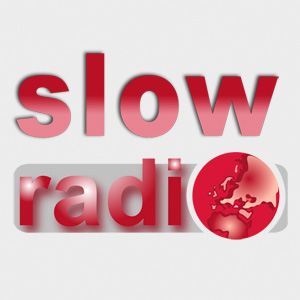One of the most talented singer-songwriters of Flanders. Managed to escape the singer-with-a-spanish-guitar-and-important-lyrics syndrome by going all out electric.
Kris de Bruyne was discovered by Wannes VandeVelde at a skiffle festival in Hove. Shortly afterwards, in 1967 he surprised everybody with a Dylanesk version of "Klein Klein Kleuterke" (Small, small toddler - the theme song for a television show for the little). About his young start - he was only 18 at the time - he later said "I started during a period when it was very easy to get a record contract. There was only one musician per district at the time. Nowadays that's 3,000 per village. But I was not a "May '68"-product myself. I've taken advantage of the climate that generation had made. Of the slogan : "Power to the imagination" that paved my way".
After that, he joined the group Lamp, Lazarus en Kris, a somewhat funny group. Being a more serious guy than Lamp & Lazarus, he went solo Kris about this later: "That was indeed a very pleasant period: “Urbanus avant la lettre”. It is no coïncidence that Wim and Guido Urbanus have followed and produced him and have put him on the world map"). The title-less debut of 1973 didn't do much in the sales department but it did produce a shock : "We can't understand the lyrics, the music is too loud!". On the album, the musicians include Jan De Wilde, Raymond van het groenewoud, Mich Verbelen & Firmin Michiels.
The follow-up "Ook voor jou" of 1975 however, has a place as one of the best Dutch-sung albums made. When the magazine Humo asked the readers in 1979 what albums were the best ever, only 6 albums by Dutch-singing artists figured in the top 200. 4 of them were by Raymond Van het Groenewoud, 1 by Johan Verminnen and the other was Kris de Bruyne's "Ook voor Jou".
The album also contained at least two songs that are now classics : "Amsterdam" and "Vilvoorde City". To illustrate the nature of this man, here's how he talks about his biggest success (you can listen to this Dutch interview here) : "After 30 years of writing song, of expression, looking for form, content, colors ... it is still a strange process for me. Some songs erupt like a Niagara in 15 minutes, others need three or four years to find their end. "Amsterdam" cost me 13 and a half minutes. It became such a success afterwards that I have always found this very suspect. To this day I'm wondering if I should've written it, because those 299 other songs I've issued are much better in my opinion".
So, the album surpassed gold status and he toured the country at a rate of 200 concerts a year. Until the taxman discovered he had "forgotten" to pay taxes on his earnings.
The successor "Ballerina's" enjoyed a smaller following. During the recording of it, Kris' brother Koen Debruyne died. He had been an influential musician (keyboards) who played in a large number of bands in the sixties and seventies (Live (avant-garde), Carriage Company (heavy blues), Paul's Collection, Johan Verminnen). Kris about this : "The record company forced me to finish that album. After my brother died, I lost all interest in it : because it was hís album. I was merely the singer."
After the album "Paprika" of 1979 (named after a painting of another brother of his that had died - Joost de Bruyne), he moved to the States.
When he came back, the belpop-frenzy had hit Belgium and Kris Debruyne was out of fashion. Nontheless, he has continued to make music since, but combined this with his tasks in his advertising agency (called Acoustics) and activities in literary circles (he is the co-founder of the literary magazine "De Brakke Hond", and put together a book about the best Belgian rocklyrics "Sire, Dit is Rock'n'Roll"). In the eighties, the musical side of things was simmering at a pretty low fire, but starting from "Keet in de Lobby" (his most aggressive album, produced by Thé Lau of The Scene) from 1993, he wholehartedly plunged himself into music again.
In 1998, Kris deBruyne celebrates his thirtieth year as a musician on the road. He released a retrospective album "30 jaar zwervend bestaan" (30 years of a roaming existence), not a simple "Best of" - that had been released in 1993 already - but an album where he re-interprets his songs with a chamber-orchestra backing him up.
Somewhat later, het toured the country together with Patrick Riguelle (see Riguelle & Hautekiet, Kadril, Spelers & Drinkers) and Wigbert. After performances at Boterhammen in het Park and Dranouter this would lead in 2000 to the project "Zakformaat XL" with which they also released an - untitled - CD.
In 2001 Kris de Bruyne came out on his own again with the "old-fashioned" album "Buiten de Wet" (outlaw) - old-fashioned in the sense of "old-fashionedly good" and with classic songs (especially the mocking "Ik lach me kapot"). Co-responsible for this new impulse were Mauro Pawlowski (a surprising choise of guitarist, as he gained his fame with the alternative Evil Superstars, but nowadays also seventies-like solo as Mauro) and his steadfast piano-companion Michel Bisceglia (see also Jo Lemaire, Johan Verminnen ...). Prepared on a boat, but recorded in a studio in Genk "Kris de Bruyne refuses to bend himself to the laws of comemrce or the formats of radio's. He is himself more than ever when he sings about love, about his village Sint-Amands, about his daughter Hannah (and a wild gig in Poperinge with Roland), about his dreams that collide with the letter of the law" Lifelong friend and writer Bart Plouvier also provided him with lyrics to one song, the talking blues "Uit liefde voor Hannah (zweer ik de slechte vrouwen af)".
04.11.2008 03:10:03 PM







